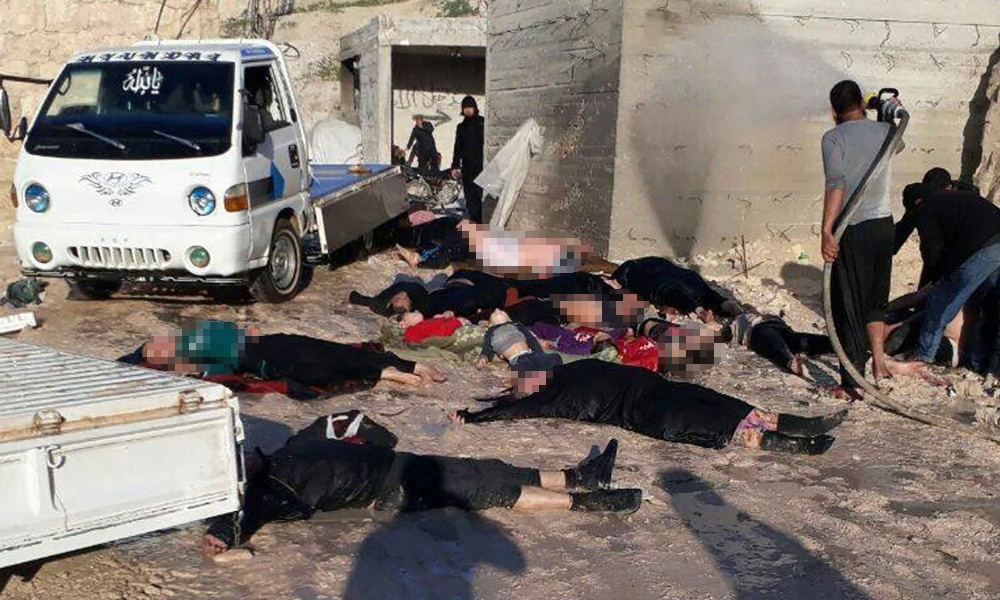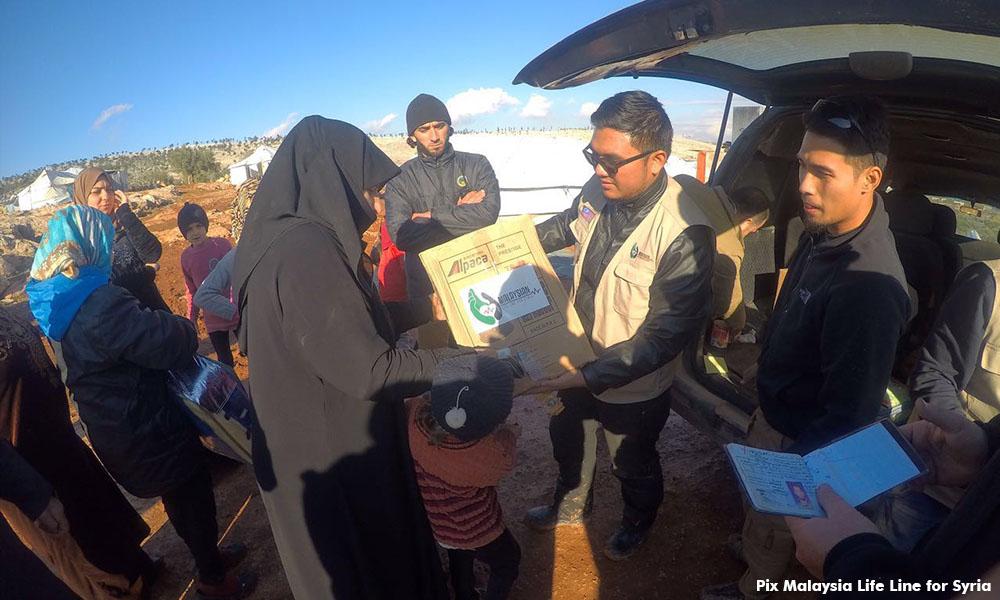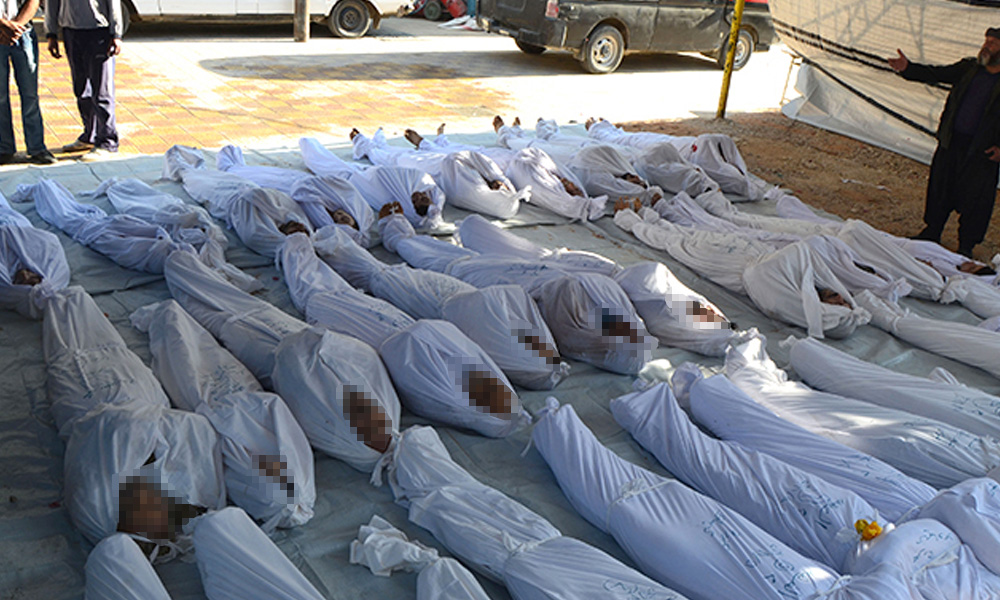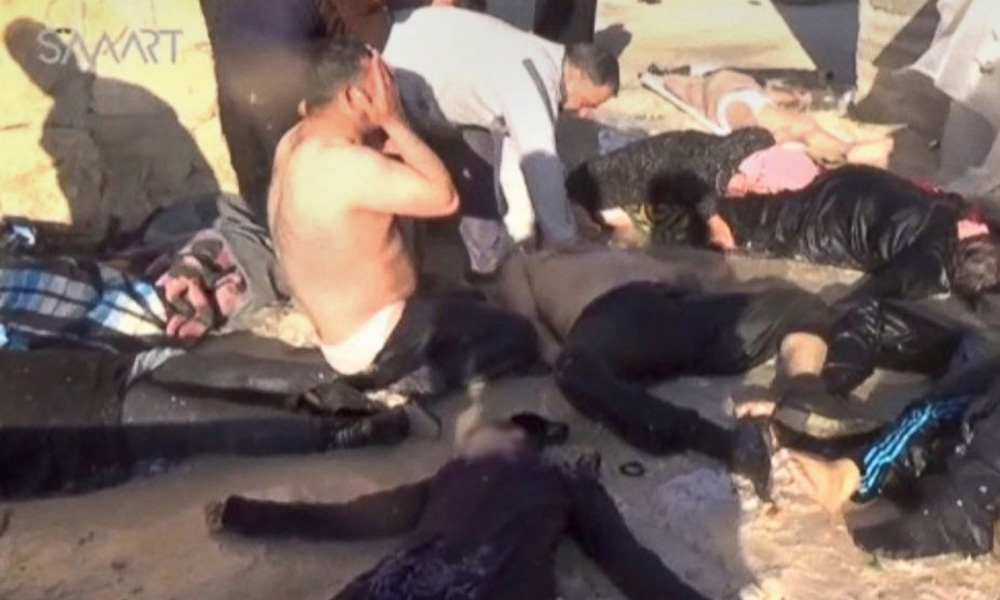FOCUS | Between 2011 and 2013, a Syrian military police photographer documented the conditions of how thousands of victims died inside facilities run by the President of Syria, Bashar al-Assad’s regime.
This photographer was code-named Caesar. He risked his life smuggling 55,000 photographs out of Syria then - and 20 of these photos sit among us today. These photos are known as the Caesar Files, and they debuted in the Asia Pacific last weekend, at none other than Kuala Lumpur.
Assad once said, “You can bring photographs from anyone and say this is torture. There is no verification of any of this evidence, so it’s all allegations without evidence.” But these photographs have been meticulously verified by Human Rights Watch, presenting cruel, damning and incontrovertible evidence of crimes against humanity in Syria.
These photos have been on display at the European Parliament, the UN headquarters in New York, and not least, the International Criminal Court Assembly of States Parties sponsored by Governments of Canada, Liechtenstein and the US.
It is so important that we understand the widespread torture, starvation, beatings, and disease in Syrian government detention facilities.
I ask that the Malaysian government too, consider sponsoring the Caesar files exhibition under the auspices of our Malaysian Parliament to raise public awareness on the ongoing horror inflicted on political prisoners – half of which are women and children, numbering 150,000 to date. They languish, and continue to be tortured in real time, today.
Turning away from the sordid reality
It is nearly impossible to find a headline devoid of news involving deaths of innocents. Yet, does this impossibility justify turning away from the sordid reality? Deflecting from facing problems head-on only allows them to fester.
And fester it did - 465,000 deaths, one million injured, and 12 million on the run. Seven years onward, the tide of blood and the hell on Earth that has afflicted Syrians, rages on.
What some might term a brutal civil war, is made all the more gravely compelling as the UN Commission of Inquiry issued 20 reports accusing Syrian president Bashar al-Assad’s government, among those responsible for mass killings, rapes, disappearances and recruitment of child soldiers.
 This hell on Earth, war-stricken nation has been under heavy bombardment and conflict for seven years. Syria now faces the double threat of Bashar al-Assad’s regime and violent incursions by ISIS, Al Nusra Front and other terrorist groups.
This hell on Earth, war-stricken nation has been under heavy bombardment and conflict for seven years. Syria now faces the double threat of Bashar al-Assad’s regime and violent incursions by ISIS, Al Nusra Front and other terrorist groups.
Clearly, if a relatively stable country like Malaysia and many others fail to set the moral parameters that categorically reject the genocidal tendencies of Bashar al-Assad, we will indirectly lend credence to other ill-intentioned actors, encouraging extremism to flourish, thereby exacerbating the crisis further.
Malaysia prides herself and thinks of herself as a predominantly Muslim but moderate, peaceful, and democratic society. Our moral compass mandates that we not turn our backs on state-sponsored terror against civilians, whose uprising in Syria began as nothing but protests for democracy seven years ago.
With this, I urge the government to duly consider three straightforward requests. Firstly, the government should host the Caesar Files exhibition at our Malaysian Parliament. Secondly, the government must condemn Bashar al-Assad’s regime of terror in Syria. Thirdly, the government must approve the establishment of a bipartisan parliamentary caucus on the Syrian crisis.
We must condemn Assad’s regime of terror
In Malaysia, we care very much about Syria’s plight. I have been fortunate enough to work with and learn from one of Malaysia’s largest Muslim youth movements, Angkatan Belia Islam Malaysia (Abim), which has led the establishment of a joint NGO named the Malaysian Life Line For Syria (MLLFS) for the sole purpose of providing humanitarian aid to Syria.[7]
 To date, the MLLFS has fundraised, organised missions to and donated food, milk powder, medical supplies and learning materials in war-torn Syria. These NGOs are many; they include but are not limited to the Muslim Volunteer Malaysia (MVM) and the Global Peace Malaysia (GPM).
To date, the MLLFS has fundraised, organised missions to and donated food, milk powder, medical supplies and learning materials in war-torn Syria. These NGOs are many; they include but are not limited to the Muslim Volunteer Malaysia (MVM) and the Global Peace Malaysia (GPM).
It is only through unwavering concern and generous donations from the public that these organisations have been able to provide humanitarian aid to the ones who need them the most. My heart goes out to the many NGOs that have risked their safety and comfort back home to provide humanitarian assistance to the Syrian people.
But it must be more than the public and NGOs that should be willing to show their support to Syria. The Malaysian government, too, must be a vocal proponent in ending Syria’s humanitarian crisis.
However, the Malaysian government has not condemned Assad’s torturous regime. This denial to condemn Assad’s atrocities have not placed us on proper footing to expose the state’s mass killings that continue to worsen the plight of Syrians, which also produced the spillover effect that is the biggest refugee crisis in history.
Malaysia’s recent two-year tenure at the UN Security Council (2015-2016) had been an effective means of standing up for Syria.
At the UN, we recognised the problems in delivering humanitarian aid, and called on all relevant “parties to allow humanitarian agencies rapid, safe and unhindered access throughout Syria”[8] With our fellow Council members, we warned “parties to the armed conflict to never make civilians the object of attack or use them as human shields”.
 We were uncompromising in demanding a nationwide ceasefire, should any proposed peace plan have a chance at actuality. More importantly, again and again, we emphasised on Syria’s sovereignty, asserting that any political transition that takes place be “Syrian-led and Syrian-owned, based on the Geneva Communiqué of 30 June 2012”.
We were uncompromising in demanding a nationwide ceasefire, should any proposed peace plan have a chance at actuality. More importantly, again and again, we emphasised on Syria’s sovereignty, asserting that any political transition that takes place be “Syrian-led and Syrian-owned, based on the Geneva Communiqué of 30 June 2012”.
I whole-heartedly support the government’s position in advocating access for humanitarian aid, and in demanding a ceasefire. But the fundamental problem remains to be acknowledged - we still have yet to confront the elephant in the room by condemning Bashar al-Assad’s government, a government who labels even innocent women and children and kind-hearted aid workers as terrorists.
Set up a parliamentary caucus on Syrian crisis
As small a country as Malaysia is, we are more than capable of pulling our weight on the international arena, should we give it our best shot.
In 2004, Malaysia set up a Parliamentary Caucus on Democracy in Myanmar. The caucus advocated democracy by demanding the immediate release of political detainees and by engaging with the opposition then for dialogue.
But most significantly, Malaysia’s initiative then mobilised member states from Asean to also form an Asean Inter-Parliamentary Caucus that would go on to pressure Myanmar for democratic reforms and demand Myanmar’s abdication from Asean’s chairmanship that year.
In 2016, Malaysia set up a Parliamentary Caucus on Displaced People of Sri Lanka following almost 30 years of civil war to assess the Sri Lankan government’s progress in rehabilitating its human rights situation. The caucus took the government of Sri Lanka to task by demanding demilitarisation and the restoration of a civilian administration.
 Clearly, Malaysia is able to participate constructively in peace and rehabilitation efforts on an international level. If Malaysia is indeed a purveyor against injustice, oppression and discrimination, regardless of creed, then this unabating humanitarian crisis in Syria must also warrant no less than a bipartisan parliamentary caucus from us.
Clearly, Malaysia is able to participate constructively in peace and rehabilitation efforts on an international level. If Malaysia is indeed a purveyor against injustice, oppression and discrimination, regardless of creed, then this unabating humanitarian crisis in Syria must also warrant no less than a bipartisan parliamentary caucus from us.
Just as it has been vocal on the oppression against the Palestinians, the Rohingyas and Sri Lanka’s Tamil population, our government must remain consistent on its moral principles and also denounce the injustice of the Assad government.
Conclusion
With the unrelenting bloodbath, it is almost unthinkable that the crisis in Syria began in 2011 when 15 schoolchildren were arrested for writing anti-government graffiti on a wall. Through peaceful protests, citizens of Syria then called for a free and democratic Syria.
Unfortunately, Assad’s government, which responded by opening fire on civilians on March 18, 2011, has relied on increasingly ruthless means through the years, including a suspected chemical attack just two months ago.
The Syrian crisis needs urgent attention. Malaysia is no longer a member of the UN Security Council, but there is still much that Malaysia as a government can do. The government can be a leading moral voice by hosting the Caesar Files exhibition at the Malaysian Parliament, by supporting efforts to condemn Assad’s regime in Syria and by establishing a cross-party parliamentary caucus on the Syrian crisis.
With Syria in turmoil and Malaysia in relative stability, there is much that we can learn from each other. From Syria, its people’s resilience; from Malaysia, multiracialism and pluralism. After all, the people of Syria do not aspire to be all that different from us.
In the landmark Geneva Communique, issued in 2012 by the UN-backed Action Group for Syria, the aspirations of the people of Syria are clearly expressed that Syria must be “genuinely democratic and pluralistic”, and that “there must be no room for sectarianism or discrimination on ethnic, religious, linguistic or any other grounds.”
Similarly, democracy and justice is a moral imperative that Malaysians too, have envisioned since independence. There is no moral ambiguity when a regime is slaughtering its citizens for standing up for their rights. As such, we must do our best to strive for freedom, justice and equality for all, no matter their creed.
NURUL IZZAH ANWAR is the MP for Lembah Pantai and a vice-president of PKR.

